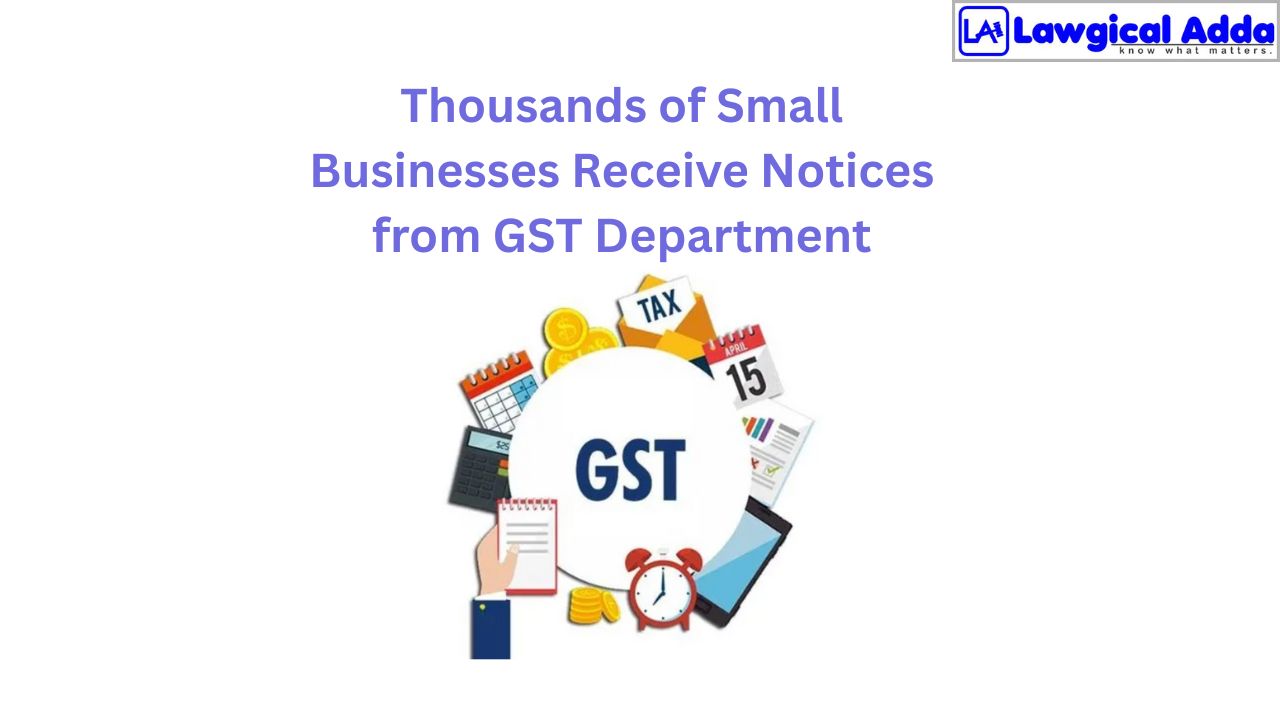How to Start your own business in 2025! India.

Table of Contents
Introduction
Hey ! if you are planning to start your business in 2025 in India then you are at right place . We Lawgical Adda here to help you start your business from very beginning. In India startup ecosystems are booming because of supportive government policies, availability of raw materials, availability of market to sell the outputs or for rendering the services as the case may be.
In this blog we will give you all the necessary steps to start your business in India form very beginning of your idea to registering your firm/company and till going live.
What is Business ?
A business is the organization or enterprises that engages in economic activities like manufacturing, trading or professional activities. it refers to the activities that involve the production, buying and selling of goods or services to the consumers to satisfied their needs and wants with the main aim of generating profits.
We Lawgical Adda Define term Business as commercial activity in which a person(s) regulate or conduct their Trade, Profession and Commerce.
Forms of Businesses in India.
The main forms of Business are:
- Proprietorship Firm
- Partnership Firms
- HUF- Hindu Undivided Family
- Limited Liability Partnership
- One Person Company
- Private Company
- Public Company
Proprietorship Firm
It is also refer as sole proprietorship. When a person starts a business and carried out all the operations by there own this is called Proprietorship Firm, It is simplest and most common forms of businesses in India. Here a Single Person owns and Manage and controls the entire business.
Key Features:
| Feature | Details |
|---|---|
| Ownership | Single individual |
| Legal Identity | No separate legal entity (owner and business are the same) |
| Control | Sole control and decision-making |
| Liability | Unlimited (owner is personally liable for all debts) |
| Regulation | Minimal compliance and registration |
Partnership Firm
When two or more persons came together to carried out the business operation and share the profit and loss earned by there them in business operations in agreed ratio is called Partnership Firm. It is governed by the Indian Partnership Act, 1932.
Key Features:
| Feature | Details |
|---|---|
| Members | Minimum: 2; Maximum: 20 (10 for banking business) |
| Agreement | Formed by a Partnership Deed (written or oral) |
| Legal Status | Not a separate legal entity |
| Liability | Partners have unlimited liability |
| Control | Shared among partners as per agreement |
| Profit Sharing | As per the agreed ratio in the partnership deed |
HUF- Hindu Undivided Family
HUF stands for Hindu Undivided Family — a legal and tax entity in India recognized under the Income Tax Act, 1961.
It’s not a company or partnership, but a family-based unit that can own assets, run a business, and be taxed separately from its members.
Key Features of HUF:
| Features | Details |
|---|---|
| Full Form | Hindu Undivided Family |
| Legal Recognition | Recognized under Income Tax Act, 1961 |
| Eligible Communities | Hindus, Sikhs, Jains, Buddhists |
| Formation | By status (through marriage & family), needs PAN & bank account for tax purposes |
| Head (Karta) | Senior-most male or female in the family |
| Members | Coparceners (including daughters), and other family members |
| Separate Tax Entity | Yes — separate PAN & tax return from individuals |
| Uses | Holding ancestral property, running family business, receiving gifts |
| Benefits | Tax planning, income splitting, asset holding |
| Limitation | Only family members can be part of HUF, no outsiders |
Limited Liability Partnership
A Limited Liability Partnership is a partnership in which some or all partner have limited liabilities. It means one partner is not liable or responsible for another partner’s misconduct or negligence.
Key Features of LLP:
| Feature | Details |
|---|---|
| Legal Identity | LLP is a separate legal entity from its partners |
| Minimum Members | 2 Designated Partners (at least one must be a resident of India) |
| Maximum Members | No upper limit |
| Liability | Limited to capital contribution (personal assets protected) |
| Perpetual Succession | Continues even if partners change or die |
| Governed By | LLP Act, 2008 |
One Person Companies
A One Person Company is a type of companies in India that allows individuals to own and manage corporate entity with Limited Liability. It was introduced by Companies Act, 2013 to promote entrepreneurship with offering of the company structure.
Key Features of OPC:
| Feature | Details |
|---|---|
| Legal Status | Separate legal entity from the owner |
| Ownership | Only one shareholder allowed |
| Director Requirement | Minimum 1 director (same person can be director and shareholder) |
| Liability | Limited to the owner’s investment in the company |
| Nominee Requirement | A nominee is required who takes over if the owner dies or is incapacitated |
| Taxation | Taxed as a private limited company (flat 25% rate) |
Private Limited Companies
A Private Limited Company is the most common and preferred form of business structure in India for startups, small to medium businesses, and tech companies. It is governed by the Companies Act, 2013 and registered with the Ministry of Corporate Affairs (MCA).
Key Features of a Private Limited Company:
| Feature | Description |
|---|---|
| Legal Entity | Separate from its shareholders |
| Minimum Members | 2 Shareholders & 2 Directors |
| Maximum Members | 200 Shareholders |
| Limited Liability | Shareholders’ liability is limited to the unpaid amount on their shares |
| Perpetual Succession | Company continues regardless of changes in ownership or directors |
| Ownership Transfer | Restricted (not freely transferable like in public companies) |
| Capital Requirement | No minimum capital requirement (can start with ₹1) |
Public Limited Companies
A Public Limited Company is a type of company that offers its shares to the general public and can be listed on a stock exchange. It is governed by the Companies Act, 2013 and regulated by the Ministry of Corporate Affairs (MCA) and SEBI (if listed).
It is suitable for large-scale businesses that require huge capital and intend to raise funds from the public.
Key Features of Public Limited Company:
| Feature | Description |
|---|---|
| Legal Status | Separate legal entity distinct from its shareholders |
| Liability | Shareholders’ liability is limited to their shareholding |
| Number of Shareholders | Minimum: 7, No maximum limit |
| Number of Directors | Minimum: 3, No maximum limit |
| Share Transferability | Shares are freely transferable |
| Stock Exchange Listing | May be listed or unlisted |
| Perpetual Succession | Continues even if shareholders change or die |
Compliances
| Entity Type | Key Registrations | Tax Filing | MCA/Other Annual Filings | Other Compliances |
|---|---|---|---|---|
| Proprietorship | GST (if applicable), Shop & Establishment License, Professional Tax | ITR-3 / ITR-4 (under proprietor’s PAN) | Not applicable | TDS if liable, maintain books if turnover exceeds limits |
| Partnership Firm | PAN, TAN, GST (if applicable), Partnership Deed registration (optional but recommended) | ITR-5 | Not applicable | TDS, advance tax, maintain books of accounts |
| HUF | PAN, HUF Bank Account | ITR-2 / ITR-3 | Not applicable | Maintain books if required, TDS if applicable |
| LLP | PAN, TAN, GST (if applicable) | ITR-5 | Form 11 (by 30 May), Form 8 (by 30 Oct) | Maintain books, audit if turnover > ₹40 lakh or contribution > ₹25 lakh |
| OPC | PAN, TAN, GST (if applicable), CIN from MCA | ITR-6 | AOC-4 (within 180 days of FY end), MGT-7A | At least 1 board meeting in each half-year, audit if turnover exceeds limits |
| Private Ltd. Co. | PAN, TAN, GST (if applicable), CIN from MCA | ITR-6 | AOC-4, MGT-7, DIR-3 KYC | Min. 4 board meetings/year, maintain statutory registers & minutes, audit mandatory |
| Public Ltd. Co. | PAN, TAN, GST (if applicable), CIN from MCA | ITR-6 | AOC-4, MGT-7, DIR-3 KYC, Secretarial Audit (if applicable) | Min. 4 board meetings/year, AGM mandatory, SEBI compliances if listed, audit mandatory |
How to start your own business in 2025! India
Before starting new business you have know few things like a business niche means what do you want to cater to the society example most of the business organization in across the world are
Get business an idea!
If you are thinking to start your own business in India or anywhere in world first of all you have to think about a Business Idea. Yes ! you heard it right not only a Business idea but also a Right Business Idea.
Business Idea means a set of plans and actions in such manner any enterprise can get or generate profit using the Business Activities with Optimum utilization(without wasting ) of its resources. It can be unique or traditional business but main of the business should be to survive and generate the maximum profit during a span of time.
Here are some of the Business Ideas: Restaurants, Hotels, Bar, Trading Business of Goods (FMCG, Hardware, Clothing, Electronics, Real Estate and so many), Manufacturing Unit ( Bricks, Electronics item, Food items, household items etc.)
Have some training and Get Experience
Get some expertise and experience in same domain after selecting the business idea. this will help you to understanding the business environments, suitability of markets and procedure and practices of business. You will be able to get a whole scenario about the business idea.
Finalize your Source of Funds
After thinking of business ideas among different kind of business ideas and having some training and experiences you required to finalize the source Funds as a fuel to your business. Here are few ways to fund your business:-
- Your own Investments
- Loan from Friends and Family
- Loan form Bank
- Crowdfunding
- Investments from Venture Capitalist
Registration
| “Starting a business is a big step, and the right start makes all the difference. Lawgical Adda makes firm registration quick, simple, and hassle-free. Whether you’re starting fresh or growing your existing business, they guide you at every step. With them, turning your idea into a registered business is fast and stress-free.” |  |









